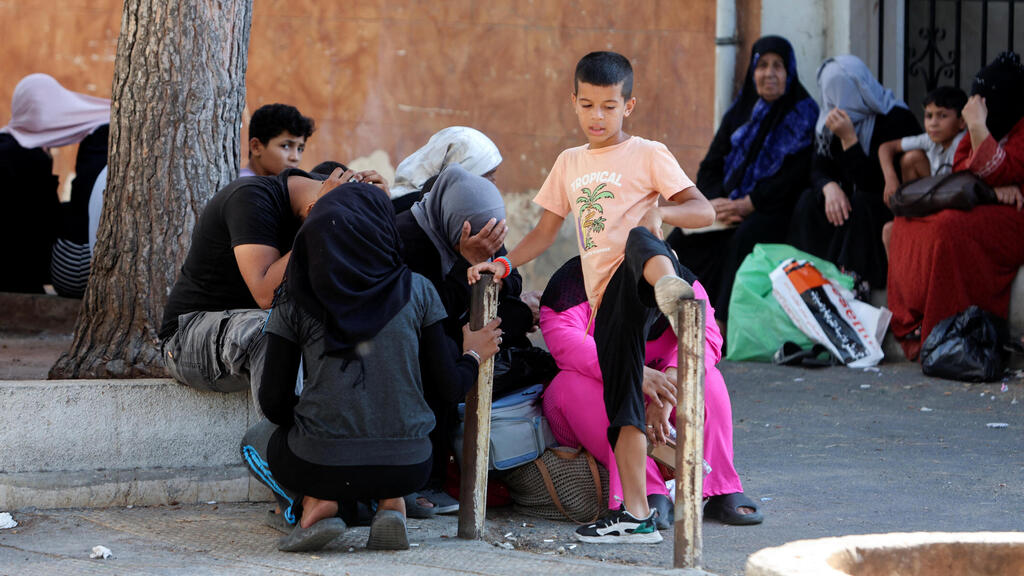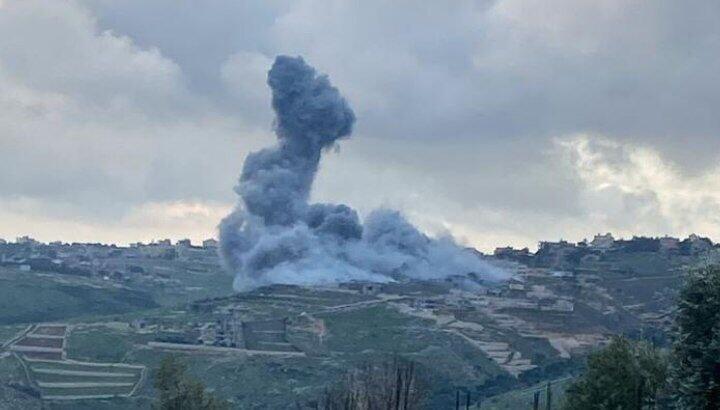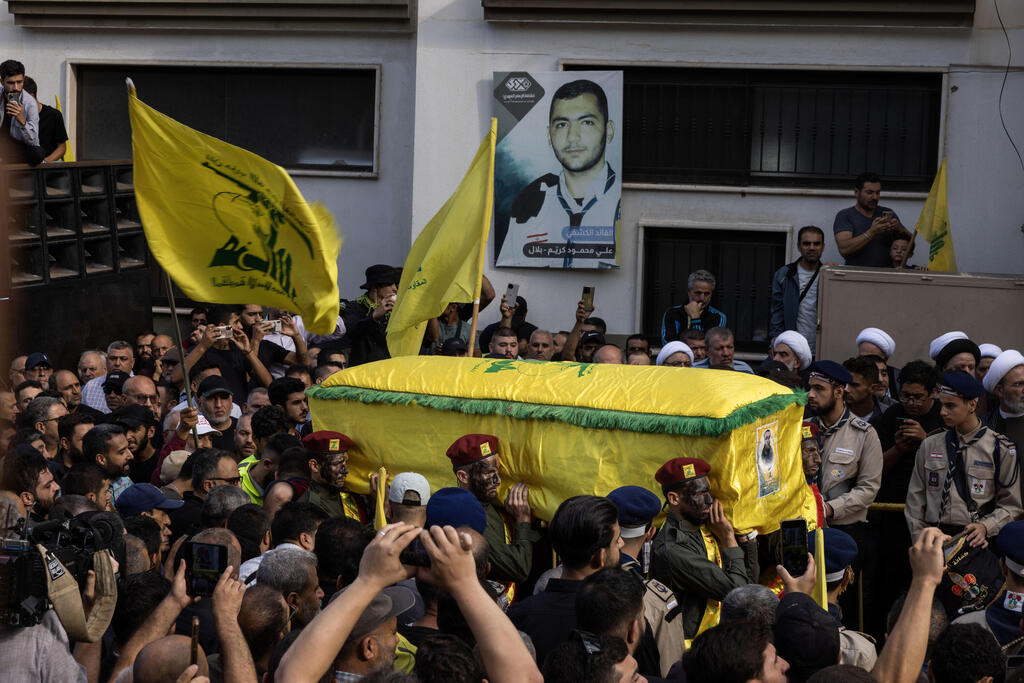While Hezbollah flaunts the strength of its operatives and the Lebanese people, and repeatedly praises the "resilience" of southern Lebanon residents over the past few months in their fight against Israel, it seems things aren’t exactly as Hezbollah chooses to show them. According to a report published by Saudi television network Al-Arabiya on Tuesday, southern Lebanese residents are "exhausted by the situation on the border."
More stories:
In another article, published by the Wall Street Journal, testimony criticizing Hezbollah was head from a resident of a village in southern Lebanon. Munira Eid, a 67-year-old from Aalma El Chaeb, chose to stay in the village, unlike many of her neighbors. "The situation could have been avoided by Hezbollah, but the Israelis are losing their minds. The strikes are worse than 2006,” she said.
Sources involved with Hezbollah's decision-making process told the American news outlet that the organization is enhancing its military readiness in anticipation of a possible Israeli operation, which they believe is a looming possibility. " We are usually an attacking force, we take the initiative. Defending for 100 days is quite difficult,” Lt. Col. Dotan Razili told the WSJ,
Al-Arabiya reported that, since October 7, Hezbollah has linked the fate of southern Lebanon to the war in Gaza. The increasing unrest affected southern Lebanese villages and also the Shiite community in general, following numerous casualties and damages.
Many residents of Lebanese border towns call for an end to the war with Israel and don’t agree with the statements of the terrorist organization controlling southern Lebanon, especially when it comes to residents of villages affiliated with Hezbollah, most of whom are Shiite.
Ahmad (assumed name) said in an interview with the network that he was forced to leave his town of Aitaroun in southern Lebanon, a town with a Shiite population who are affiliated with Hezbollah. He sought refuge with his family in Beirut to escape the Israeli strikes targeting the town. "After more than 100 days of war, we had to leave the town because of the ongoing attacks, and sought refuge with one of our relatives in Beirut," he said.
According to Ahmad, the lives of the residents have changed completely due to the war. "Our homes were destroyed in the violent attacks, agricultural production was severely affected by the phosphorus bombs, and no official or unofficial source asked us what happened to us. Our situation is like that of many families who were uprooted from the town," he noted.
"We’re tired of the war," he added. "We hope to finish it and return to our normal life, which hasn't been normal since the economic crisis in 2019. We don't want anything from the state except stopping the war so that we can go back to our homes and land."
Mohammed, a resident of Bint Jbeil, where most residents are Shiite, also called for an end to the fighting. "Israel is an enemy to all of us," he said in an interview with the network., "It attacks our sovereignty every day, but we’re tired. The economic impact on our villages and towns is severe, which were already suffering before the war. We want to return to the lives we had before October 7. We have become displaced in our own country."
He expressed his sorrow that official authorities "abandoned their responsibility" toward the residents of southern Lebanon. According to him, the residents stand firm due to the support they receive from relatives living outside Lebanon. "We hope the war ends today so that we can return to our town, assess the damage, repair it, and live a normal life," he said.
The Shia in southern Lebanon aren’t certain that the continuation of the war is beneficial for them, according to Al-Arabiya. They ask themselves: 'What is the meaning of victory when villages are destroyed, and people are displaced from their homes?' Additionally, there is a feeling of fear that doesn’t allow people to express these voices publicly.
Khaleefa, an interviewee from southern Lebanon who opposes Hezbollah, said the organization's narrative regarding opening a front in Beirut as “a front in support of Gaza," is wrong, and the Lebanese people are paying a price for it. "Hezbollah coordinates its military action according to Iran's recommendations and its negotiations in the region," he said.
The chief editor of the Lebanese Al-Janoubia website, who was also interviewed by Al-Arabiya, said the Shia community and Hezbollah fear the outbreak of a war in Lebanon. "Hezbollah markets the war and its importance, but those who visit the southern villages, especially those affiliated with Hezbollah, see the residents' panic," he said.
He noted that Hezbollah is concerned about the scale of Israeli attacks targeting senior terrorist officials, while Hezbollah's response to these attacks remains lackluster in comparison. According to Al-Arabiya, around 80,000 people were displaced from southern Lebanon during the first three months of the war, and the number of refugees has surged recently following more intense strikes on towns along the Lebanese border.






